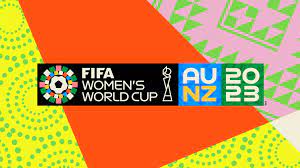By Samindra Kunti in Auckland
July 26 – Indigenous Football Australia (IFA) have written to FIFA and Football Australia, slamming their “empty symbolism” of Indigenous imagery at the Women’s World Cup. FIFA, however, say work is being done on space for indigenous football.
In a letter, IFA complained about a lack of a legacy plan for Indigenous football communities following the Women’s World Cup. FIFA claims consultations are ongoing.
The Women’s World Cup in Australia and New Zealand has incorporated a lot of First Nations and Maori symbolism and imagery, but IFA, supported by the Maori Federation, believe the tournament will not have a lasting legacy for indigenous football communities and wrote a second letter to the world federation and the Australian federation to highlight “the egregious omission of the Indigenous football community and First Nations-led football organisations” from the Women’s World Cup legacy plan.
The letter referenced Fatma Samoura’s words to the Australian Broadcasting Corporation (ABC) with FIFA’s secretary general explaining that “we cannot come and just play and leave” and saying that she pressed FIFA’s chief of women’s football Sarai Bareman to highlight the plight of the First Nations and Maori communities in the host nations.
However, IFA doesn’t think FIFA will act on those words. IFA also argues that Football Australia’s Legacy plan, with the promise of AUD$ 357 million in investment, has excluded Aboriginal and Torres Strait Islander peoples. “Not a single dollar from the legacy program has been committed to organisations that are Indigenous-led,” read the letter that accuses FIFA and Football Australia of “empty symbolism”.
It is understood that FIFA and Bareman replied to the IFA letter, on behalf of Football Australia as well, with the world federation’s women’s boss pointing at FIFA’s 2021 Human Rights Risk Assessment when both the Australian and New Zealand Human Rights Commissions identified meaningful and authentic engagement with First Nations and Māori communities as one the key human rights priorities for the tournament.
From their side, FIFA stress they have undertaken numerous initiatives, including binational acknowledgments of the traditional owners, a tournament-specific First Nations and Māori cultural panel, the inclusion of First Nations flags in the stadiums, and branded Traditional Place names for Host Cities and training sites.
Bareman wants to continue the dialogue, create space for indigenous football and invest.
Football Australia rejected IFA’s claims, pointing at the New South Wales government’s contribution included the provision of funds for a First Nations football program.
On March 17, the Australian Indigenous Football Council (AIFC) had also addressed a letter to FIFA, Gianni Infantino, and Fatma Samoura. The AIFC urged FIFA to uphold its commitment to human rights by granting self-determination and control over their soccer destiny to first nations bodies. They argue that FIFA, as stipulated in Article 3 of the FIFA Statutes, has an obligation to uphold all internationally recognised human rights, including the 2007 Declaration on the Rights of Indigenous Peoples.
Contact the writer of this story at moc.l1745071447labto1745071447ofdlr1745071447owedi1745071447sni@i1745071447tnuk.1745071447ardni1745071447mas1745071447

